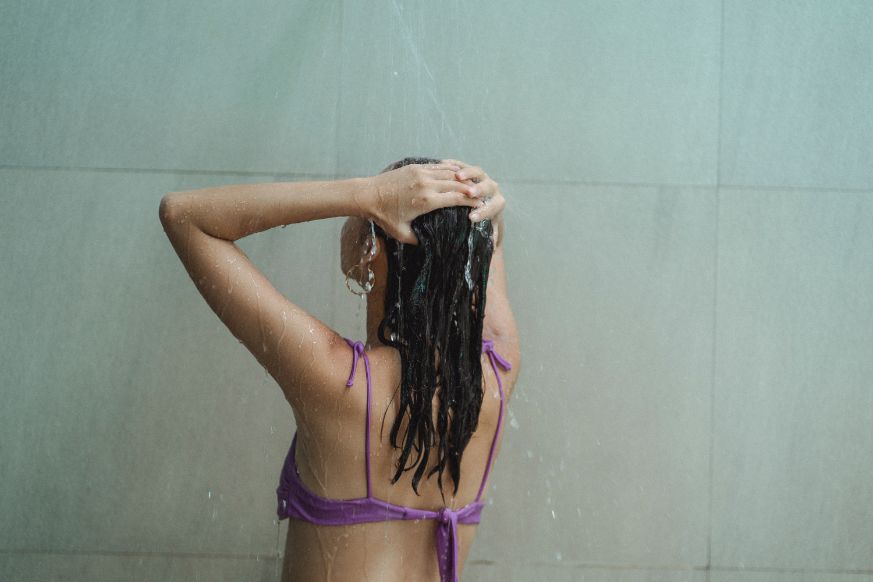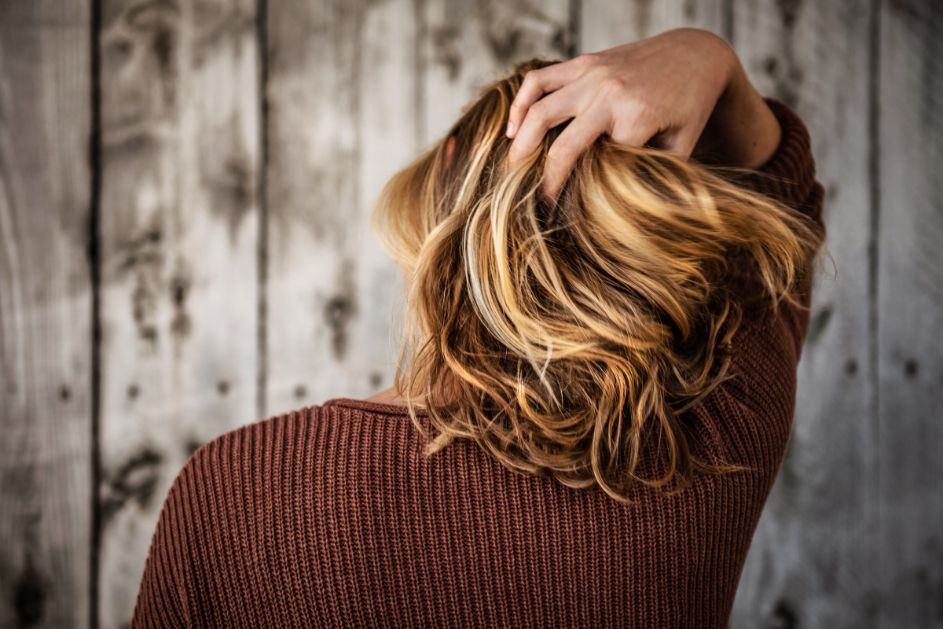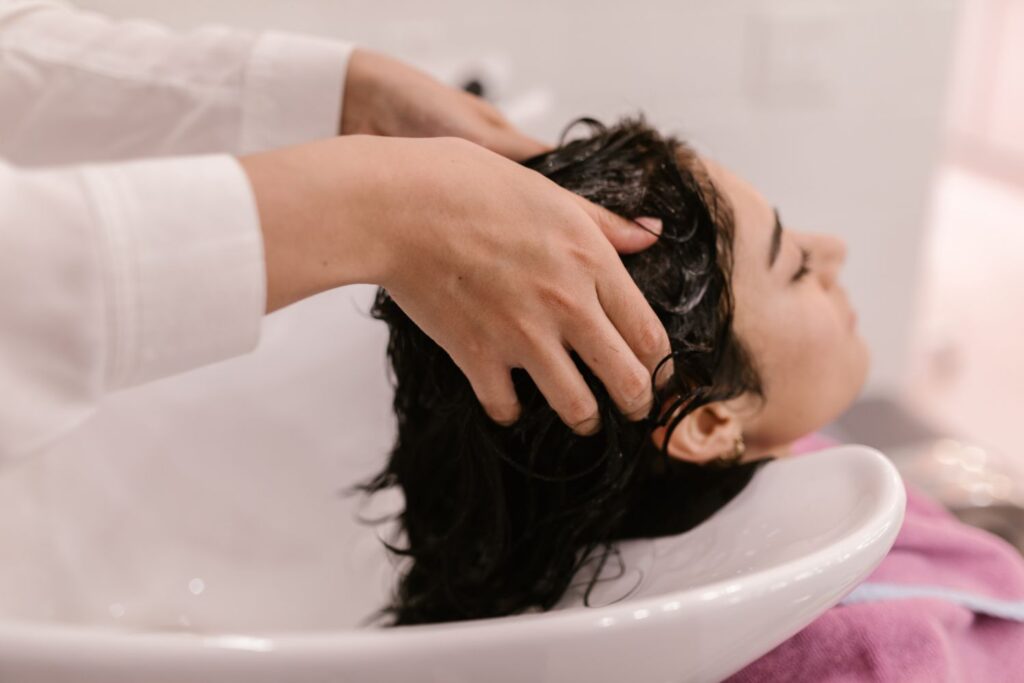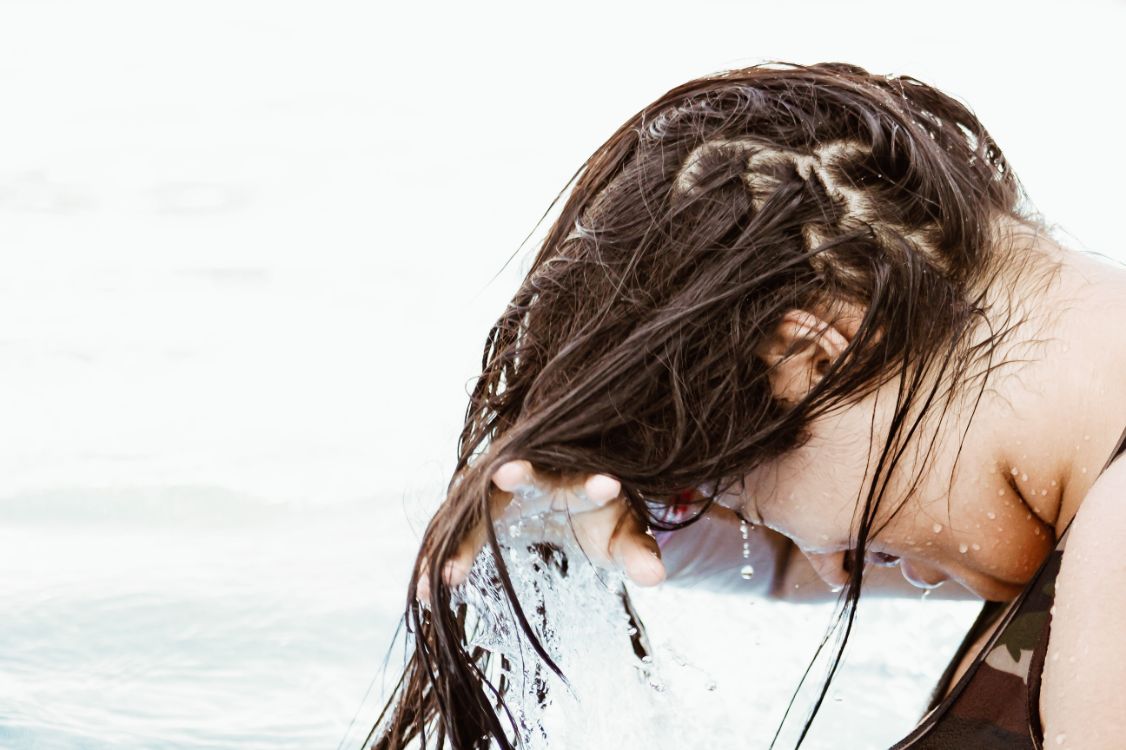We are all aware that selecting the proper hair care products is important. But did you know that maintaining the health of your hair also depends on the water’s temperature? Read on to find out why is that.
Hair washing is similar to brushing your teeth. You need to be doing it correctly because it is a daily task that you must complete. But, are you?
Well, the water’s temperature and how you wash your hair can make all the difference in having a good or bad hair day. Which is better for washing your hair: hot or cold water? Does using cold water benefit your hair? Learn about the benefits of using hot and cold water as well as the ideal temperature for washing your hair in the following paragraphs.
How Does Water Temperature Affect Your Hair?
Overusing very hot water stresses your hair, resulting in frizzy, brittle, and dry hair. Additionally, hot water damages your hair by making it weak, which causes it to fall out.
This implies that you must abstain entirely from washing your hair in hot water and shiver every time. No, using lukewarm water won’t harm your hair in the slightest.
For washing your hair, both warm and cold water are suitable. Whichever order you use them in is important.
Does Cold Water Help Your Hair?

Cold water has received a lot of attention recently as a possible miracle treatment for hair. Cold water hair washing may promote hair growth while also enhancing circulation, strength, and shine. Some of these assertions are challenged, casting doubt on how much cold water can actually help.
Even though cold water is probably not the miracle cure that it is portrayed to be, it can still have some advantages.
You may be interested in
- Is drinking cold water bad for you?
- Does Cold Water Open Pores?
- Is It Good For Your Skin To Wash Your Face With Cold Water?
The Benefits of Using Cold Water on Hair
In several ways, cold water can support the health of your hair, primarily by benefiting your scalp in a number of ways. The advantages of washing your hair with cold water include the following.
Smoother Scalp
By using cold water to wash your hair, you can avoid flakiness, dryness, and scalp irritation. Since the colder temperature promotes better circulation and preserves the quantity of sebum, or natural oil, on your scalp, using cold water will help you experience less dandruff.
Cleaner Scalp
Your hair and scalp will stay cleaner for longer thanks to the cold water. In order to keep dirt, oil, and other pollutants from clogging the pores, the lower temperature works to close the hair follicles. As a result, using cold water will help you avoid damaging your hair by allowing you to go longer between washes.
Skipping Hot Water
Simply because it is not hot water, which can harm your hair, is one of the other main advantages of using cold water. One of the main causes of your scalp becoming dry and becoming itchy and irritated is washing and rinsing your hair with hot water.
The heat from hot water can dry out the hair strands and cause frizzy hair, which can also have an immediate impact on the hair strands.
The Disadvantages of Using Cold Water to Wash Hair
- Because cold water traps moisture in your hair, the extra moisture may cause your hair to lose volume by weighing it down and making it appear flat and less voluminous.
- It can be uncomfortable to swim in cold water. Let’s face it, using cold water on your body or hair is unpleasant, especially during the months when the weather starts to cool.
When to Use Cold Water for Your Hair?
Although using only cold water on your hair may not be the best option, cold water can help close hair follicles and keep dirt from clogging up your scalp. The hair follicles will remain closed if only cold water is used, which may reduce how effective the washing process is.

The best technique for washing your hair is to first wash it in warm water, then rinse it out with cold water.
The hair follicles are made more accessible and the dirt is released when you wash your hair in warm water. Additionally, open hair follicles enable your shampoo to penetrate the hair and deliver nutrients that support healthy hair.
Using only cold water could limit the effects of your shampoo and leave you with traces of oil or dirt after you’re done. After thoroughly washing your hair, you can rinse with cold water to reap the scalp benefits mentioned above.
Remember that you should wash with warm water, not hot. To open your follicles and flush out dirt, just use room-temperature water.
Is Hot Water Bad for Your Hair?
That’s not to say you should completely forgo that scrumptious hot shower on a chilly winter day. But as Longsworth pointed out, using too much hot water could lead to problems. High-temperature washing can damage hair cuticles, remove natural oils from the scalp and hair, and possibly result in dry hair.
Hair that has been stripped of its natural oils may become excessively porous, which can result in frizzy, frustrating hair that is fragile and prone to breakage.
How about the impact of hot water on color?
“Color pigments can most definitely be broken down by hot water. In actuality, by raising the cuticles, any heat source, including hot water, styling tools, and the sun, can fade hair color. If cold water is not an option, avoid exposing your hair to the sun or high-heat styling tools,” said To help your color last longer as well, Longsworth, always uses an all-natural heat protectant.
The Benefits of Using Hot Water on Hair
- Any accumulation, dirt, and grime are removed using warm water. It’s one of the best ways to clean your pores, remove dirt, and clean your hair.
- Warm water stimulates blood flow to the follicles, which is an excellent way to promote hair growth.
- Your scalp and hair are cleaned of excess oil by using warm water. People with oily or greasy hair will benefit from this.
- The cuticles on your scalp are loosened by warm water. You are now able to thoroughly wash your hair.
- Your hair will appear more voluminous and less flat after using warm water. Additionally, it improves the “staying power” of any hairstyle.
The Disadvantages of Using Hot Water to Wash Hair

- Hot water removes natural oils from your hair, especially if the temperature is too high. Your hair will be deprived of its natural, beneficial oil as a result, appearing dry and brittle.
- Your scalp dries out after using hot water, which can cause itching and dandruff.
- Your hair becomes frizzy because hot water weakens the roots in your hair. The texture is also damaged, and the hair is susceptible to breaking.
- Because hot water makes your hair too porous, breakage, brittleness, and flyaways are once again caused.
The Ideal Water Temperature
Although the effect of water temperature on hair is obvious, what temperature should you use to maintain the healthiest strands possible?
When washing hair, warm water is ideal; when conditioning hair, colder water is ideal. Warm water facilitates follicle opening and removes buildup from the scalp and hair. The hair becomes smoother and more glossy as a result of the colder temperature’s effects on the cuticle layer, follicle closure, moisture retention, and hair appearance.
Having said that, if you simply cannot bear to wash your hair in cold water, stick to lukewarm water. It is not worth the discomfort.
Generally, you can wash your hair in water that is 100°F or 38°C warm (slightly above the normal body temperature). You are allowed to use water that is cooler in the summer.
It is preferable to give a final rinse with cold water that is the right temperature after shampooing and cleaning with lukewarm water. The open pores and raised cuticles will be locked by doing this.


